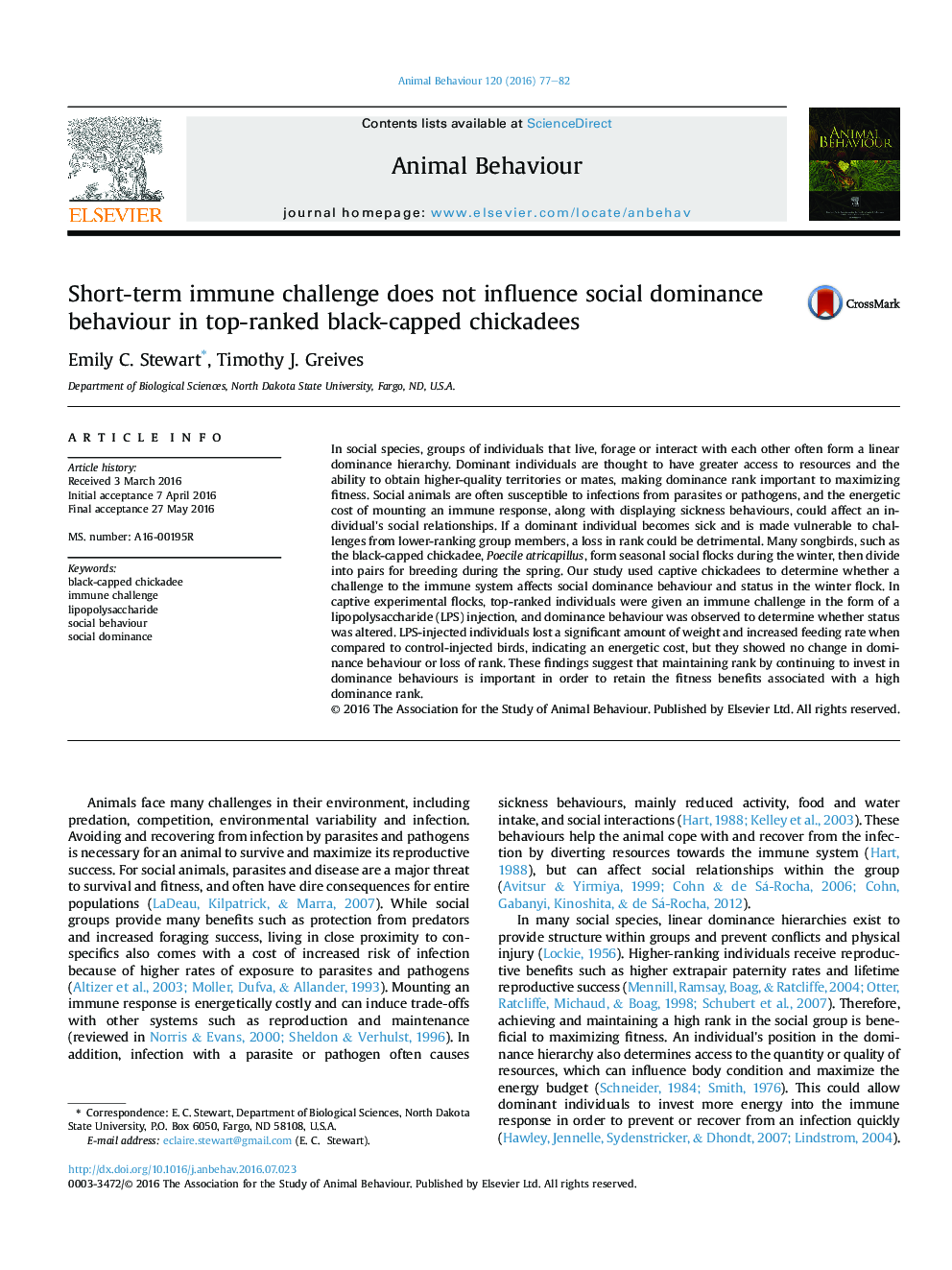| Article ID | Journal | Published Year | Pages | File Type |
|---|---|---|---|---|
| 2416215 | Animal Behaviour | 2016 | 6 Pages |
•We investigated effects of immune activation on dominance behaviour in chickadees.•Birds received lipopolysaccharide (LPS) injection as an immune challenge.•Dominant birds injected with LPS lost more mass than control birds.•Dominant birds injected with LPS increased feeding rate.•Immune activation did not induce a detectable change in dominance behaviours.
In social species, groups of individuals that live, forage or interact with each other often form a linear dominance hierarchy. Dominant individuals are thought to have greater access to resources and the ability to obtain higher-quality territories or mates, making dominance rank important to maximizing fitness. Social animals are often susceptible to infections from parasites or pathogens, and the energetic cost of mounting an immune response, along with displaying sickness behaviours, could affect an individual's social relationships. If a dominant individual becomes sick and is made vulnerable to challenges from lower-ranking group members, a loss in rank could be detrimental. Many songbirds, such as the black-capped chickadee, Poecile atricapillus, form seasonal social flocks during the winter, then divide into pairs for breeding during the spring. Our study used captive chickadees to determine whether a challenge to the immune system affects social dominance behaviour and status in the winter flock. In captive experimental flocks, top-ranked individuals were given an immune challenge in the form of a lipopolysaccharide (LPS) injection, and dominance behaviour was observed to determine whether status was altered. LPS-injected individuals lost a significant amount of weight and increased feeding rate when compared to control-injected birds, indicating an energetic cost, but they showed no change in dominance behaviour or loss of rank. These findings suggest that maintaining rank by continuing to invest in dominance behaviours is important in order to retain the fitness benefits associated with a high dominance rank.
